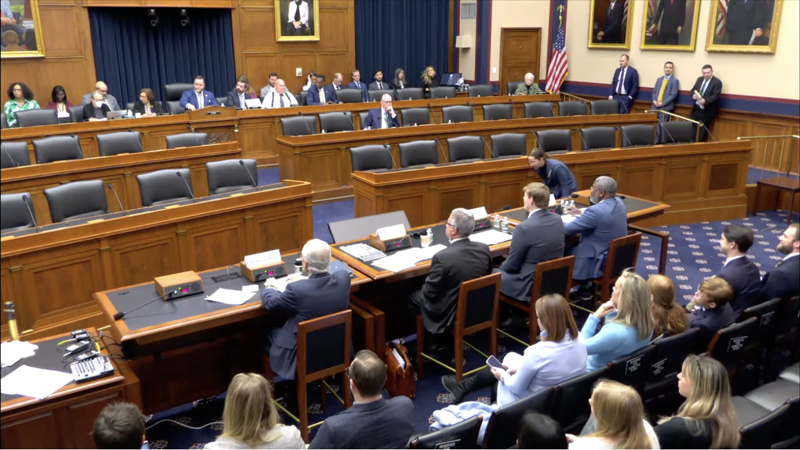During a congressional hearing on civics education Wednesday, Democrats stated that K-12 students do not receive instruction on critical race theory. Republicans disagreed and asked witnesses pointed questions to show the framework is in schools.
The hearing highlighted the partisan divide on the kinds of instruction students should receive regarding the nation’s founding and whether schools should approach teaching with equity or equality.
The tension between the parties was evident from the very beginning of the hearing, titled “Back to Basics: America’s Founding, Civics, and Self-Government in K-12 Curricula,” when committee chair Rep. Aaron Bean, a Republican from Florida, lambasted critical race theory and said American students are falling behind other countries.
“Rather than a curriculum that focuses on helping students bounce back from COVID setbacks, our children are taught race-inspired ideology,” Bean said. “Today, we are here to discuss the dangers inherent in the curriculum being taught in American elementary and secondary schools.”
“Chief among these dangers is that schools are substituting the traditional narrative of this great but flawed nation with a political story built on racial resentment and collective guilt. The force is called critical race theory or CRT. It’s a neo-Marxist ideology that has crept into classrooms across America. It is now reshaping how young people interpret their identity and is changing how they see themselves, each other and our country.”
Bean said despite critics saying CRT is not taught in classrooms today, “we’ve got evidence that it does.” Bean said that elements of the theory are “being thrown at young, impressionable people.”
The committee’s ranking member, U.S. Rep. Suzanne Bonamici, said that instead of addressing curriculum issues, the Subcommittee on Early Childhood, Elementary, and Secondary Education should focus on sending federal aid to revitalize school buildings.
The Democrat from Oregon also said that CRT is a legal framework not taught in schools and that Congress should focus on creating equity of opportunity for students in poorer districts.
“You are using the term critical race theory without defining it, and as you likely know, it was a legal theory posited by Derek Bell, who happened to be the dean of my law school,” Bonamici said. “It is not a K-12 issue.”
Other Democratic lawmakers made similar statements, denying that CRT is taught in public schools.
Rep. Jahana Hayes, a Democrat from Connecticut, said that, as a former public school history teacher for 15 years, she had never received any instruction on critical race theory.
“I never had any professional development that separated me by race and taught this because it is just not taught or discussed at the K-12 level,” Hayes said. “It is a legal theory taught in law school. And if that needs to be said once again, I’ll say that.”
Hayes stressed that the federal government can’t do anything to control local curricula.
Ian Rowe, an American Enterprise Institute scholar and the head of public charter schools in the Bronx, New York, said that while Democrats are technically correct that critical race theory as a legal theory is not taught in public school classrooms, its ideals in practice are widespread.
Rowe said while you won’t hear the legal concept of CRT in first grade, “you will see practices such as learning walks where children are lined up in a horizontal line and a teacher will say ‘Take two steps forward if you’re white and take three steps backward if you’re Black."”
Chalkboard News reported that a teacher alleges such privilege walks and professional development occur at Evanston-Skokie School District 65 in Evanston, Illinois. A letter from the Department of Education found that the school had violated federal antidiscrimination law by separating students and staff by race.
Rowe added that “specific practices undergirded by the ideology driving critical race theory” manifest in policies around state assessments that show racial disparities, which are often equated with structural racism.
Rowe also said critical race theory practices intended to close the racial achievement gap miss the point because there has never been a year in which a majority of white students were reading at grade level. Rowe said it would be better to focus on the science of reading and high-quality curricula.
• This story initially published at Chalkboard News, a K-12 news site that, like The Center Square, is also published by Franklin News Foundation.







